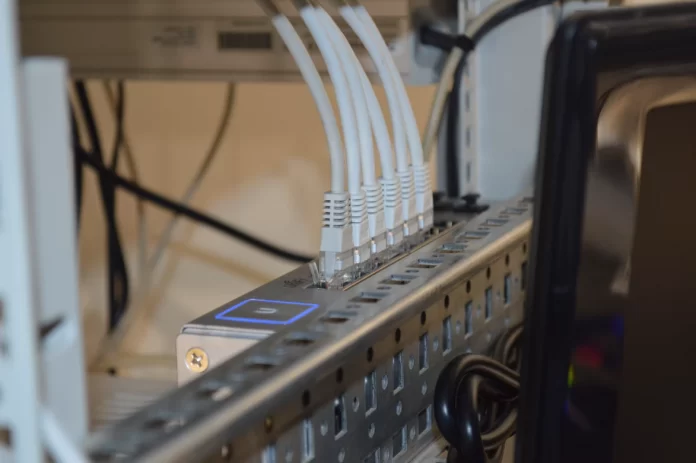The Internet is one of the most important inventions of mankind for modern people. Today, many people can no longer imagine their lives without the Internet. Every day we check the news, post photos, communicate with friends on the Internet, and just absorb a lot of different information on the Internet. However, few people think about the fact that the Internet can be unsafe.
When it comes to the security of the Internet, hackers immediately come to mind. These are cybercriminals who can hack your devices and steal data or just arrange various problems with your system. One of the weaknesses you may have in your system is unsecured Internet access ports. If you don’t want to put your data in danger you should learn more about secure and non-secure ports and if possible secure the Internet access on your device.
What are Internet ports
The Internet has given people quite a few opportunities. Today, most different programs and apps work by connecting to the Internet and using remote access to files on their servers. However, as well as many opportunities, the development of the Internet has led to a large number of various problems and dangers. In particular, the term computer sabotage even appeared. That is why you should learn more about internet security and how exactly you can provide your device with maximum protection.
In order to understand what unsecured and secured ports are, you first need to understand how the World Wide Web works. The fact is that each device has its own port to access the Internet. Apps, programs, and operating systems use these ports to access the Internet. Thus, roughly speaking, they connect to the server where the necessary data is and take it from there.
However, there is a danger in this case that if you have open ports then you can be hacked by sending a false signal on which you will pass for example, or simply by starting a virus in your system. This is the reason why you should take care not to leave ports unprotected.
Read also:
- How to block Scam Likely associated calls
- How to move Steam Authenticator to a new phone
- How to choose the right Ethernet cable
What are open ports
As described above, the Internet works in such a way that your system essentially requests and receives some data which programs then process and show you the requested information. All of this is done through connection ports. Every service usually has its own port which works only for one specific task. This means that there can be dozens of such ports on your computer.
Open ports are ports which not only request data but also receive packets. Most of the online protocols use open ports since they need to retrieve information from the server to execute processes within their program. Closed ports on the contrary refuse to receive data and block all incoming signals.
Some processes are configured to work only with open ports and therefore some ports always remain open. This is usually the case for various services which require connection to the Internet and are running in the background.
Each system will have its own individual set of open ports. Ports are usually opened and closed depending on the requirements of your operating system and brandmauer. This means that each computer has its own individual set of settings and, accordingly, depending on the security settings of your system you may have different ports open.
What is an unsecured opened port and why it may be dangerous
In fact, in most cases, open ports themselves aren’t a big problem. Typically, attackers in cases where they’re trying to hack you use vulnerabilities in programs that use these open ports. That’s why it’s so important to get yourself all the latest updates. Developers are usually quick to find problems and vulnerabilities in their system and fix them in new patches.
Also, open ports that aren’t meant for public access can be dangerous as well. There were cases when intruders used such ports to download malware to other devices which received traffic through these ports. Thus all devices connected to the same network turned out to be infected.
Also one of the problems are open ports which are prone to multiple requests. For example the Windows remote desktop protocol had a vulnerability which allowed attackers to send multiple connection requests before they guessed the password and thus gain access to the PC. It is a good idea to install a lockout mechanism after a few incorrect password entries to avoid such problems.
How to secure your ports
There are a few universal tips that you can follow to secure your network connection and not worry about being hacked. To do this, you need to:
Use a VPN
One of the safest and most proven ways to secure your network connection is to use a virtual private network. This means that before you open a website, for example, you first connect to a remote server and make a request for information through that server. In this case it is almost impossible to intercept the signal.
Use multi-factor authentication
Another good way to secure your network is to put multi-factor authentication on your accounts. This way, hackers won’t be able to access your account and system, since access to your data will be contingent on confirming the action on another device.
Check your network periodically
If you’re in the business of networking, a good idea is to hire a cybersecurity officer or pay a company that does this to scan your system for vulnerabilities and malware. This is the surest way to find out the problems quickly and get them fixed.
Read also:
- How to fix Android phone not connecting to Wi-Fi
- How to fix “Can’t take the screenshot due to security policy” on an Android device
- How to change IP address on Asus router
How to protect your device from hackers
Besides the fact that you can be hacked remotely, there is a very big risk that you for example install a virus by mistake or that someone gets unauthorized access to your device and can also hack it. In order to protect yourself from this, you should follow a few simple security rules when using your devices.
Change your passwords periodically
Quite often they leak databases with all kinds of passwords to accounts. It’s possible that one of the databases where your password may be shown may also have been hacked and made public. So you should periodically change your passwords and make them as personal as possible, that they couldn’t be simply picked up knowing superficial information about you.
Don’t give your devices to strangers
You shouldn’t let, for example, random passers-by call from your phone or allow strangers to your laptop. You should always be afraid that this person might try to steal your personal data or even payment cards from your devices. Even public places to charge phones can be dangerous.
Use antivirus software
It’s a good idea to get anti-virus software. Such software can automatically scan all the files you try to install on your system and warn you of potential threats. There are also many good antivirus programs which are very effective against malicious software.
Do not connect to unfamiliar access points
If you see a wi-fi open but you’re not sure where it’s coming from then it’s better to pass it by. Remember that the free cheese is usually only in a mousetrap. If you connect to an insecure hotspot, it will be even easier for intruders to gain access to your device.






